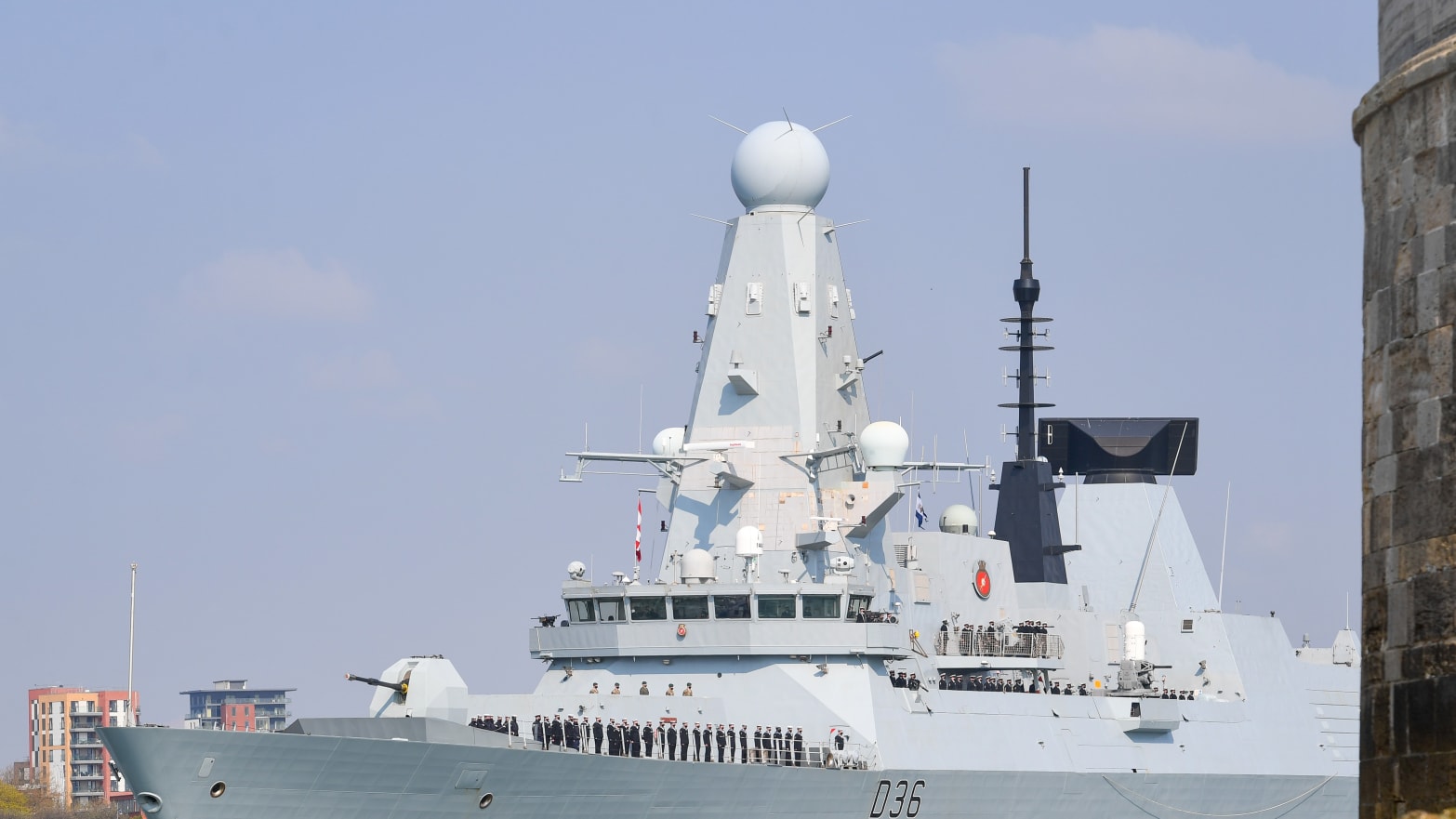Russia Says it Fired Bombs into the Path of a British Warship Off the Coast of Crimea
But Britain says it never happened.Philippe NaughtonUpdated Jun. 24, 2021 3:43AM ET / Published Jun. 23, 2021 8:08AM ET
Depending on who you want to believe it was either almost the start of World War III, or just a silly Kremlin PR stunt.
The Russian Defense Ministry announced Wednesday that one of its warplanes had dropped four bombs into the path of a British destroyer, which was also targeted with warning shots from a Russian patrol ship. According to the Russian version of events, the Royal Navy vessel was chased out of Russian territorial waters off Crimea—the rest of the world recognizes those waters as Ukrainian.
“The destroyer had been warned that weapons would be used if it trespasses the border of the Russian Federation. It did not react to the warning,” it said, before noting that the ship had left Russian waters shortly afterward “as a result” of the Russian actions.
On the face of it, this was the most serious maritime spat between the two nuclear powers for decades—except that it may not have even happened.
Reacting to the Russian statement, the British Ministry of Defense said on Twitter that “no warning shots” had been fired at HMS Defender, which had been “conducting innocent passage through Ukrainian territorial waters in accordance with international law.”
It went on to suggest that even the bombs—which the Russians described as “high-explosive fragmentation devices”—had been expected, even if they were not welcomed. “We believe the Russians were undertaking a gunnery exercise in the Black Sea and provided the maritime community with prior-warning of their activity. No shots were directed at HMS Defender and we do not recognize the claim that bombs were dropped in her path.”
At the root of the contradiction is the fact that Britain, and her allies including the U.S., have never recognized Russia’s 2014 annexation of Crimea, which they still consider as Ukrainian territory. The waters of Cape Fiolent, a noted Crimean landmark, therefore remain Ukrainian waters under international law.
Defender, a Type 45 guided-missile destroyer, had been with a U.K. carrier group in the Mediterranean but peeled off earlier this month and had just left the Ukrainian port of Odessa, where officers witnessed the signing of a U.K.-Ukrainian naval training deal.
That deal would clearly have irritated Moscow, which disputes Kyiv’s sovereignty over much of its territory and has been fighting an undeclared proxy war in eastern Ukraine for years.
Reporting on Wednesday’s stand-off, the Moscow Times, an independent English-language newspaper, picked up on a news report from the U.S. Naval Institute that someone had faked HMS Defender’s open-source positioning data to make it appear that the British ship and another NATO vessel were sailing directly towards the Sevastopol headquarters of Russia’s Black Sea Fleet. “Positioning two NATO warships at the entrance of a major Russian naval base would be widely seen as a provocative action, based on conflicting claims of sovereignty,” the American institute reported.
If, as seems likely, it was the Russians that hacked that data to make it appear that Defender’s path was even more “provocative” than might otherwise be considered, then it’s not much of a leap to suggest that today’s near-miss had all been cooked up too—another provocation from the masters of false flag operations.
According to Mark Galeotti, an expert at the U.K.’s Royal United services institute, Defender’s mission to Odessa had been “a political one—about projecting presence, supporting Kiev and reminding Moscow that its annexation was not forgotten or accepted,” he said in a tweet. Moscow had “likewise reacted politically” with the phony GPS signals followed by claims to have driven the Royal Navy ship away from its waters.

No comments:
Post a Comment